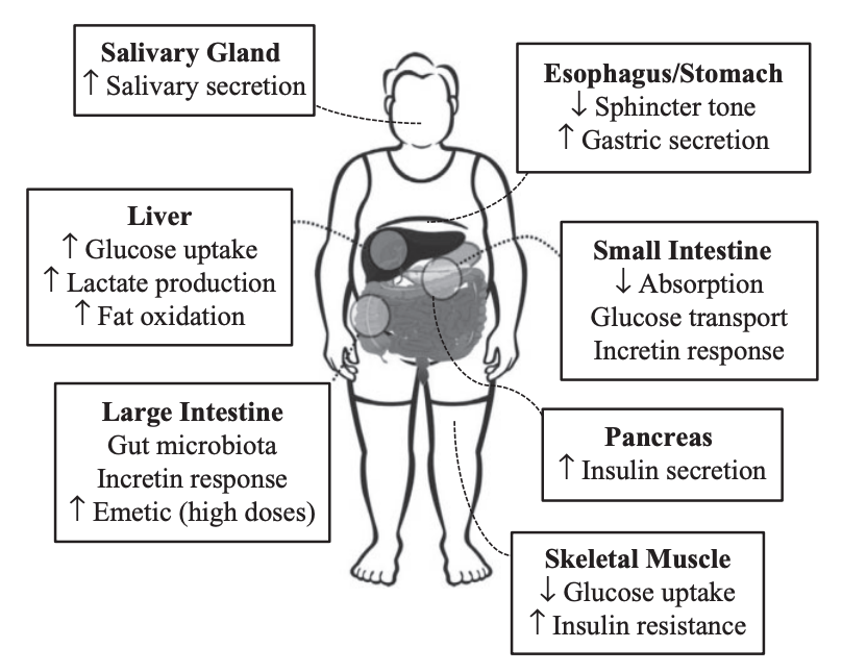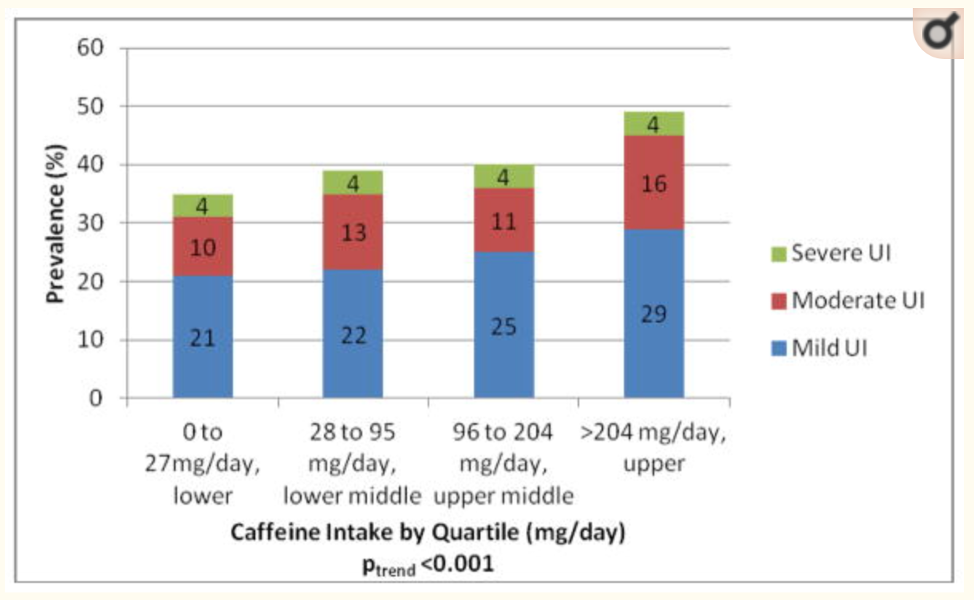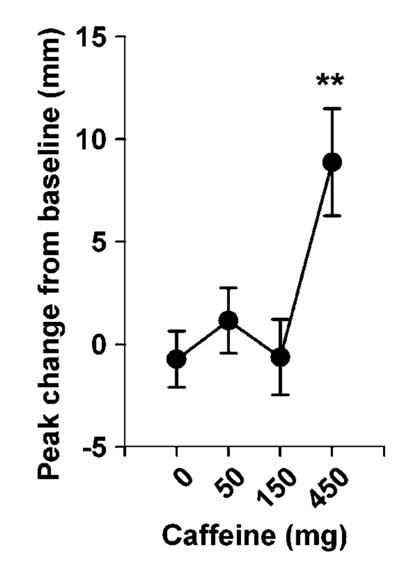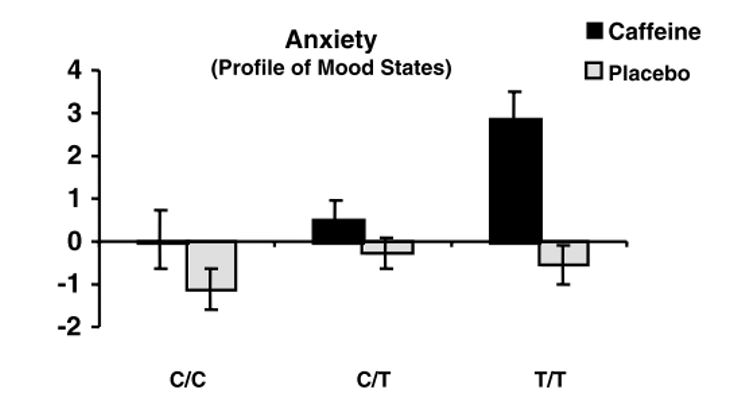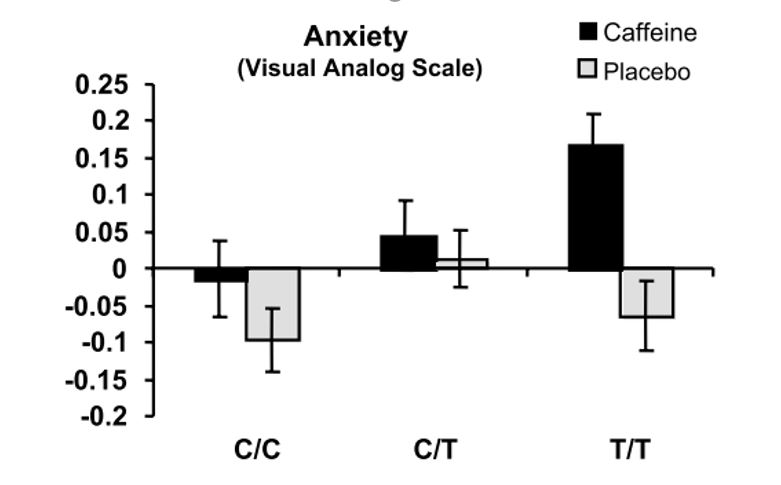This is an old revision of the document!
Table of Contents
Presentation Slides
Introduction
Coffee is a big part of many people’s daily lives. For those unaware of what it is, it is a legal central nervous system stimulant found in many widely-consumed goods. For example, this naturally occurring stimulant is found in coffee beans, tea leaves, chocolate, medications and even soft drinks! It is so popular that it is considered the world's most widely consumed psychoactive “drug”. It is a well-known fact that it can help individuals stay awake and keep alert! Many of you reading this probably rely on coffee every day to help you get through the day. Many of you also might experience withdrawal symptoms if you don't get your daily intake of caffeine; you’ve developed tolerance and it is a part of your culture now. But you have to wonder, is it good for you? How much is too much? Should you drink coffee every day? and will it harm you in the long-term? We’re not sure either, but that’s what we wanted to examine through this project. Through this wiki, we hope to educate you on the effects of caffeine on your digestive system, cardiovascular system, mental health, and sleep and alertness. Additionally, we look at some of the positive outcomes of consuming caffeine in the short and long-term.
Caffeine and the Digestive System
Consuming caffeine, especially in high amounts, has significant impacts on the gastrointestinal tract, metabolism, urination tendencies and bowel movements. Caffeine is consumed more than any stimulant drug in the world. Coffee has also been linked to stimulating gallbladder contraction and colonic motor activity (Boekema et al., 1999). Other studies have found that coffee consumption decreases the risk of digestive tract and liver cancer, especially gastric cancer (Romualdo et al., 2019). Romualdo et al., (2019) found that daily coffee drinking significantly reduces the risk of gastric cancer by 7% when compared to non-coffee drinkers. Those who drank 3-4 cups of coffee a day had a 12% risk decrease. However, more research should be conducted to establish a solid correlation, before everyone starts drinking large amounts of coffee (Romualdo et al., 2019). Caffeine is rapidly and almost completely absorbed (99%) in the GI tract, within 45 minutes of consumption (Romualdo et al., 2019). 20% is absorbed by the stomach and the majority by the small intestine. (Romualdo et al., 2019). Since the GI tract experiences caffeine at the highest concentration, it is impacted the most by it.
Figure 1: How consumption of energy drinks containing caffeine affects the gastrointestinal tract, liver and skeletal muscle. In the large intestine, caffeine consumption affects the gut microbiota, incretin response and increases chances of vomiting. In the small intestine, decreased absorption occurs and caffeine also affects glucose transport and incretin response. (Shearer, 2014).
The study conducted by Shearer (2014) on energy drinks containing caffeine discovered that high doses of caffeine helps relax the lower esophageal sphincter and also increase gastric acid secretion. The caffeine starts by stimulating salivary secretions and then interacts with specialized GI cells in the intestine that secrete incretins (Shearer, 2014). Incretins are peptide hormones that are released into the circulatory system in response to nutrient ingestion and helps secrete insulin after a meal (Shearer, 2014). Thus, caffeine helps secrete incretins which releases insulin after a meal, helping with maintenance of the sugars in our body.
Coffee promotes gastro-oesophageal reflux which is when stomach acid leaks into the oesophagus and can cause heartburn (Boekema et al., 1999). Heartburn is the most common gastrointestinal symptom that results from drinking coffee and is experienced by about 68% of patients who experience GI symptoms (Boekema et al., 1999). This is caused by direct irritating effect on the oesophageal mucosa due to the acidic nature of coffee, or by promoting gastro-oesophageal reflux (Boekema et al., 1999). A study that focused on the effects of caffeine on gastro-oesophageal reflux after meals in healthy subjects, found that coffee stimulates gastric acid secretion and could possibly induce secretion as well (Boekema et al., 1999). Coffee has a pH of 5-6, making it more acidic compared to water. Thus, pH was monitored in patients and found that more reflux occurred after drinking coffee, rather than water (Boekema et al., 1999). Additionally, decaffeinated coffee reduced the reflux time but didn’t completely eliminate the effect (Boekema et al., 1999).
Frequent Urination Due to Caffeine
Caffeine has a diuretic effect that affects the bladder by increasing pressure on the muscle wall of the bladder and promoting detrusor muscle excitability. A caffeine intake greater than 204 mg per day was linked to urinary incontinence (UI), even when controlling other UI risk factors like water and total liquid intake (Gleason et al., 2013). Gleason et al., surveyed 4309 women in the United States and found that 41% experienced UI and 16.5% had moderate or severe urinary incontinence. Overall, there was not a strong relationship between the severity of UI symptoms and caffeine intake, but caffeine was linked to an increased prevalence of urinary incontinence (Gleason et al., 2013).
Figure 2: Prevalence of Urinary Incontinence and Severity in US Women. Caffeine intake was divided into quartiles and severity of urinary incontinence was measured and presented. Urinary incontinence was most commonly experienced when more than 204mg of caffeine is consumed per day. (Gleason et al., 2013).
Staack et al., (2017) also investigated the effects of caffeine on urination and concluded that high amounts of coffee should be avoided to prevent urgency and frequency of urination. They performed a study where 49 health individuals between ages 18-45, were required to maintain consistent liquid intake (at least 2L per day) and only drink caffeinated items provided by the research team. Some subjects had regular coffee (450mg caffeine) and others had decaf (12mg caffeine), for 5 days before results were obtained. They found that people who didn’t consume coffee regularly were more vulnerable to changes in urination patterns and that high-dosage coffee consumption can cause overactive bladder symptoms (Staack et al., 2017). Symptoms of urgency, frequency and urge incontinence are all dosage dependent with high dosage increasing frequency, urge incontinence and promoting detrusor overactivity (Staack et al., 2017). Those who drank coffee regularly experienced little change in urination patterns and people who rarely consume caffeine experienced the most drastic urinary symptoms (Staack et al., 2017).
Laxative Effects of Caffeine
Many coffee drinkers report increased bowel activity after consuming caffeine, causing research to be conducted to figure out the facts. Boekema et al., (1999) performed a study where a catheter was inserted from the rectum up to the mid-transverse colon. They studied how colonic motor activity was impacted by drinking regular coffee, decaffeinated coffee or water, paired with a 1000 calorie meal. The conclusion was that regular and decaf coffee caused more colonic activity than drinking water (Boekema et al., 1999). Caffeinated coffee stimulates colonic motor activity the most and caused 60% stronger activity than water and 25% stronger than decaf (Boekema et al., 1999). Thus, caffeine causes increased colonic motor activity, which is responsible for causing a laxative effect and increasing bowel movement.
Postoperative ileus (POI) is a condition involving severe constipation and intolerance of oral intake caused by disruption of the propulsive motor activity of the GI tract. Typically, POI self-resolves, but extended hospital stays and morbidity due to POI has a big impact on health care costs. In fact, it costs hospitals an extra $750 million per year (Gkegkes et al., 2020). A study, involving 341 patients, discovered that coffee intake after abdominal surgery significantly reduces the time to first bowel movement, time to first flatus, and time to tolerance of solid diet (Gkegkes et al., 2020). Time to defecation also decreased after caffeine consumption. Gkegkes et al., (2020) also discovered that coffee enhances colonic motility within 4 minutes after consumption and can help prevent abdominal distension, pain and discomfort. Eamudomkarn et al., (2018) also tested on patients experiencing POI. They found that caffeine reduced time to first defection by almost 10 hours, when compared to drinking just water. Also, time to first flatus was reduced by 7 hours, time to first audible bowel sound by 4 hours, and decreased length of hospital stay by 0.75 days. Overall, the administration of coffee as a postoperative ileus prevention measure can change recovery and recovery time, after major abdominal surgeries.
How Caffeine Impacts Heart Health
Blood Pressure
The majority of medical doctors recommend people to avoid drinking coffee until they have their blood pressure checked. In order to determine the effects of caffeine on blood pressure a study was conducted on 15 healthy volunteers with normal blood pressure. 6 of these participants were regular coffee drinkers. The researchers looked at volunteer’s blood pressure and heart rate under several different conditions. They found that coffee only raised blood pressure in individuals who did not have caffeine regularly. However, the blood pressure of coffee drinkers stayed the same and no significant change was observed (Coffee & Blood pressure, n.d).
Additionally, a review of 34 studies showed that drinking 1-2 cups of coffee per day will increase the systolic pressure by 8mm Hg and diastolic pressure by 6mm Hg (Chrysant et al., 2017). However, these effects were only observed up to three hours after consumption. These effects are not usually seen in regular coffee drinkers, which could be due to the fact that they develop caffeine tolerance (Chrysant et al., 2017).
Furthermore, another study was done on 85,747 women and tried to look at the effect of coffee consumption on blood pressure and heart rate (Willett et al., 1996). These women had no history of any types of cardiovascular diseases and they were followed for a period of 10 years. They found that coffee consumption only increased blood pressure for a short period of time and there was no link between coffee consumption and an increased risk of high blood pressure (Willett et al., 1996).
As a result, coffee consumption could raise blood pressure for a short period of time. However, in the long run, no significant impact on blood pressure is observed. As with anything, overconsumption can have negative effects and the same goes with coffee consumption(Strachan et al., 2019). The American Heart Association as well as Mayo Clinic recommends that the daily consumption of caffeine should not be more than 200 mg (Dowell et al., 2018).
Heart Rate
Habitual coffee drinkers typically consume caffeine for one main purpose: staying awake. Caffeine has the ability to help you stay awake through a variety of mechanisms, one of which involves pumping more blood, and subsequently oxygen, to your brain to help you stay awake and alert. But a habitual coffee drinker must wonder then, how is this affecting my heart? In the context of heart rate, Daniels and colleagues (1998) show that there is indeed no significant difference in acute heart rate. They tested the caffeine condition on 10 cyclists who do not consume caffeine. While there was a change in blood pressure and arterial pressure, there was no change in heart rate. From this study, we can see that caffeine can induce this alertness not by increasing the heart rate, but rather by increasing regional blood flow to the brain by increasing blood pressure and arterial pressure. Another study verifies this increase in blood pressure but also suggests that there is a decrease in heart rate for both coffee and caffeine consumption (Whitsett, Manion, & Christensen, 1984).
Even in coffee drinkers who have potentially developed tolerance, 24 abstinence of caffeine does not result in any changed to heart rate. It is hypothesized that this duration of abstinence is enough to negate tolerance of caffeine, further demonstrating that caffeine decreases one’s heart rate. The most consistent theme amongst these studies is that short-term/acute caffeine consumption will increase the consumer’s blood pressure and cause a slight decline in one’s heart rate , however long-term effects are minimal (Green, Kirby, & Suls, 1996). Even when examining potential synergistic effects of two compounds, such as caffeine and taurine, the resultant heart rate decline is still attributed to caffeine (Bichler, Swenson, & Harris, 2006). Therefore, through these studies, we can see that caffeine instead decreases one’s heart rate, and potentially compensates for this by increasing blood pressure and arterial pressure.
Another important risk factor in determining cardiovascular health is heart rate variability (HRV). HRV is essentially the variation in time between consecutive heart beats. Similar to the first study discussed in this section, researchers examined the effects of caffeine on individuals pre- and post-exercise. Their results demonstrated no significant difference in heart rate pre- and post- exercise, as expected. Interestingly enough however, there was a significant increase in heart rate variability pre-exercise, suggesting that caffeine can induce changes to HRV (Yeragani, Krishnan, Engels, & Gretebeck, 2005). It is important to consider that this occurred pre-exercise too, meaning we cannot attribute these results to the exercise. However, research discussing the effects of caffeine on HRV are not conclusive, as HRV is a relatively recent marker being used. This is evident as a study Rauh, Burkert, Siepmann, & Mueck-Weymann (2006) shows that HRV does not actually change in response to caffeine ingestion. They suggest further research much be conducted to validate their results.
Effects of Caffeine on Anxiety
Anxiety is our body’s natural way to respond to stress. This feeling of fear and discomfort varies in magnitude from one person to another and can be triggered by countless stimuli. Research has shown that high doses of caffeine can stimulate our body’s “fight or flight” response with symptoms like the “jitters” that memic anxiety symptoms.
A study by Childs et al. (2008) studied the effect of variable caffeine exposure on different individuals. The study consisted a four-session, double-blind, placebo-controlled, within-subject design. Each subject received placebo, 50, 150, or 450 mg caffeine in random order during four test sessions conducted at least 72 h apart. Standardized questionnaires were used to assess the participant’s baseline mood states and anxiety levels and post-exposure levels. Some standardized tests included Profile of Mood States (POMS) to asses the state of anxiety and a visual-analog scale (VAS) to rate anxiety. Results showed significant increase in anxiety at high doses of caffeine, as shown in Figure ##. With these results, the researchers concluded, that the effect of caffeine on anxiety is dose-dependent.
Figure : Change in self-reported anxiety based on the Visual Analog Scale (VAS) after exposure to different doses of caffeine. Data represents mean peak change from pre-caffeine baseline in participants post-caffeine exposure. Only the the highest dose of caffeine (450mg) significantly increased ratings of anxiety (p-value<0.01). (Childs et al., 2008).
Genetics of Caffeine-induced Anxiety
Certain genetic mutations can make some people more susceptible to caffeine-induced anxiety than others. Research has shown that polymorphism in the Adenosine A2A receptor, aka ADORA2A, may be responsible for the variation in response to caffeine, and contributes to caffeine-induced anxiety. The adenosine A2A receptor is a G-protein-coupled receptor concentrated mainly in the dopamine-rich basal ganglia areas of the brain (Fredholm et al, 2000). It is important for regulating myocardial oxygen consumption, coronary blood flow, CNS neurotransmitters, and anxiety. Caffeine is thought to be an adenosine-receptor antagonist (Snyder and Sklar, 1984), meaning that it blocks the receptor once it binds to it and inhibits its biological response.
In a study by Alsene et al. (2003), blood samples were collected and DNA was extracted to confirm A2A receptor gene polymorphisms. There were two linked polymorphisms: 1976T>C and 2592C>Tins. Together they formed three genotypic groups: the 1976C/C and 2592C/C group, the 1976C/T and 2592C/Tins group, and the 1976T/T and 2592Tins/Tins group. Participants were then split into groups based on their genotypic group. Using the same standardized tests, POMS and VAS, participants were asked to rate their anxiety after being administered either caffeine or placebo. Results showed significant increase in anxiety levels in individuals with the genotypes containing the polymorphism, as shown in Figures # and #.
Figure : Change in self-reported anxiety based on the Profile of Mood States (POMS) after exposure to placebo and 150mg of caffeine. Between the three genotypic groups, only the 1976T/T groups reported significant increase in anxiety. (Alsene et al., 2003).
Impact of Caffeine on Sleep and Alertness
The body quickly absorbs caffeine and caffeine reaches its peak level just after 30 minutes. However, the half-life of caffeine varies among different individuals and can be anywhere between 2 to 10 hours. Several different factors determine how long caffeine stays in the body and those include the person’s age, weight, liver health and susceptibility to caffeine (Watson et al., 2016). In addition, people who regularly drink coffee build up a tolerance to its effects. Therefore, it is no surprise that each individual could react differently to caffeine (Watson et al., 2016).
Research has shown that night owls (people who stay up late at night) are less affected by caffeine, compared to early risers. A study was done on college students and they found out that night owls stayed up later at night with caffeine. However, they were still able to sleep without any interruption (How does caffeine really affect sleep, 2019). The researchers are looking to continue their research on individuals other than students as results could vary (How does caffeine really affect sleep, 2019).
Adenosine is a neurochemical that increases in our body throughout the day. As adenosine levels increase, the individual feels more tired. Caffeine is a stimulant that blocks adenosine and therefore, it could have an impact on one’s sleep. A study done in 2016 looked at the effects of caffeine consumption on sleep for 80 adults. Adults who reported poor sleep quality consumed significantly more caffeine compared to those who reported good sleep quality (Watson et al., 2016). Based on the data gathered, researchers concluded that greater consumption of caffeine affected sleep and resulted in poor sleep quality (Watson et al., 2016).
A different study focused on how the timing of caffeine ingestion would affect sleep (Drake et al., 2013). This study was done on 12 healthy adults without insomnia, and they were given 400 mg of caffeine either 3 hours before sleep, 6 hours before sleep or immediately prior to sleep (Drake et al., 2013). They found out that in all three scenarios, the time spent to fall asleep as well as the time they spent awake at night increased drastically. As a result, they concluded that moderate intake of caffeine even 6 hours before bedtime could have disruptive effects on sleep (Drake et al., 2013).
In addition, caffeine has been found to help people cope with jet lag. Jet lag occurs after long flights across different time zones and it could either cause severe sleepiness or alertness at inappropriate times (Arendt et al., 2009). Coffee consumption has been seen to increase alertness and this could help to control the sleepiness of individuals with jet lag (Arendt et al., 2009). A review study showed that short naps combined with moderate coffee consumption during the times of appropriate wakefulness helped individuals suffering from jet lag (Arendt et al., 2009).
Another impact of caffeine on sleep is that it affects our sleep cycle by changing our circadian rhythm. Caffeinated drinks delay melatonin release when it is bedtime (Burke et al., 2015). Burke et al., (2015) placed participants into three different groups. One group was the placebo, the other group was exposed to bright and dim light, and the last group received a double-espresso caffeine dose (Burke et al., 2015). They found that caffeine delayed sleep by 40 minutes whereas bright light only delayed sleep by 20 minutes (Burke et al., 2015). Researchers realized that this could actually help individuals cope with jet lag since caffeine shifts the circadian rhythm.
Fatigue is a common problem that could affect all drivers. Fatigue can reduce a driver’s driving ability as well as their reaction time. An experiment by (Horne et al., 1999) was performed to determine whether coffee consumption is effective in reducing the driver’s sleepiness. They found that consumption of strong coffee that contained 150-200 mg caffeine paired with a short nap was effective in reducing driver’s sleepiness (Horne et al., 1999). Also, fatigue is a common issue in commercial drivers. Research has showed that approximately 43% of those drivers consumed some sort of caffeinated drinks, such as energy drinks, coffee and tea (Sharwood et al., 2013). Drivers who consumed caffeinated drinks actually had a 63% reduced chance of crashing (Sharwood et al., 2013).
However, caffeine consumption has been found to have negative impacts on people with sleep apnea (Caffeine & sleep, 2018). Sleep apnea is a sleep disorder and one of the main symptoms of this disorder is feeling high fatigue levels during the daytime. The majority of individuals with sleep apnea use caffeinated drinks to cope with their high levels of daytime sleepiness (Caffeine & sleep, 2018). Since many people rely on caffeine to help with sleep apnea, this could delay them from seeking professional help to eliminate their problem.
Finally, sleeping pills such as antihistamines are used to help an individual sleep by inducing a feeling of fatigue (Hurd, n.d). However, there are cases where the effects of these sleeping pills last longer than sleep, causing the individual to feel groggy and tired even after the wake up from a restful sleep. In order to wake up, the person might start drinking coffee which might keep them alert for too long, causing them resort to sleeping pills. Thus, they end up in a loop, which will impact their body's natural circadian rhythm and their everyday wellbeing (Hurd, n.d).
Addiction to Caffeine
Caffeine is the most commonly used psychoactive drug in the world. Whether it comes from coffee, tea, energy drinks or coda, many individuals feel the need for caffeine in the morning in order to increase alertness. In North America, more than 90% of adults use it regularly, with the average consumption being around 200 mg daily (Meredith et al., 2013). Although low to moderate levels of caffeine consumption are safe, clinical studies show that caffeine users become dependent on it, and thus are unable to reduce caffeine consumption despite being aware of the detrimental effects (Meredith et al., 2013). The World Health Organization and other health care professionals have recognized caffeine addiction as a clinical disorder (Meredith et al., 2013).
Mechanism Behind Caffeine Dependance
Caffeine is strongly addictive, and studies have shown subjects exhibiting syndromes of intoxication, withdrawal, and dependence (Benowitz, 1990). It is quite easy to develop a dependence on caffeine. This occurs as a result of the chemical changes that sustained consumption produces in the brain. If an individual drinks caffeine on a daily basis, they will develop a tolerance. Regular users become acclimated to the wake-up aspect that caffeine produces, and will progressively require greater quantities in order to reach the same level of alertness.
Specifically, the brain chemistry is altered overtime in those that drink caffeine. Caffeine has been shown to stimulate dopaminergic activity by removing the negative modulatory effects of adenosine at dopamine receptors (Meredith et al., 2013). Studies have suggested that dopamine release in the nucleus accumbens shell is likely to be a specific neuropharmacological mechanism which underlies the addictive potential of caffeine (Meredith et al., 2013). Caffeine is a competitive adenosine receptor antagonist, and ultimately blocks endogenous adenosine, thus preventing the onset of drowsiness (Sajadi-Ernazarova & Hamilton, 2019). The brain cells grow more adenosine receptors in an attempt to maintain equilibrium. This is how tolerance develops, as the brain has more adenosine receptors and thus is takes a greater amount of caffeine to block a large portion of them in order to achieve the desired wakeup effect (Sajadi-Ernazarova & Hamilton, 2019). Thus, up-regulation of the adenosine system after chronic caffeine administration appears to be a neurochemical mechanism which underlies the caffeine withdrawal syndrome.
Caffeine Withdrawal Syndrome
Those that abruptly stop drinking caffeine after prolonged use will suffer from withdrawal symptoms and showcase strong cravings. Caffeine withdrawal refers to a time-limited syndrome that occurs after the termination of caffeine administration (Meredith et al., 2013). Caffeine withdrawal syndrome can occur with abstinence from daily doses as low as 100 mg a day, however, the chances and severity of symptoms increase with higher amounts (Schuh and Griffiths, 1997). Withdrawal from caffeine causes mild to clinically significant distress and impairment of daily functioning (Sajadi-Ernazarova & Hamilton, 2019). Caffeine withdrawal symptoms begin around 12-24 hours after cessation of caffeine intake and reach maximum intensity 20-48 hours after abstinence (Schuh and Griffiths, 1997). In some individuals, however, these symptoms can appear within only 3-6 hours and can last up to a week (Schuh and Griffiths, 1997). Common symptoms include headache, fatigue, decreased alertness and uneasy feelings (Sajadi-Ernazarova & Hamilton, 2019). These symptoms are easily suppressed with low doses of caffeine.
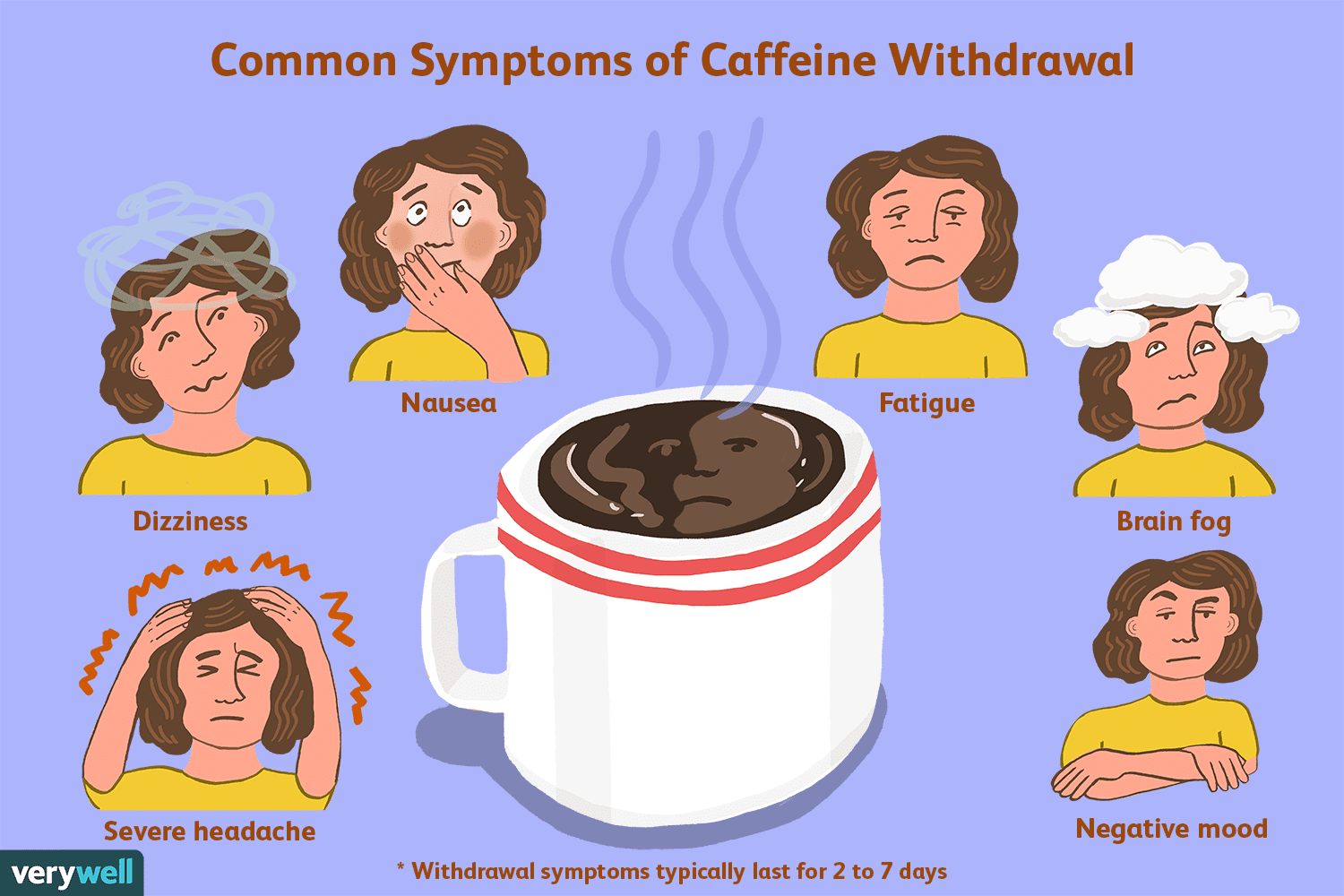
Figure : Common symptoms resulting from cessation of caffeine. Withdrawal from caffeine causes mild to clinically significant distress and impairment of daily functioning. Caffeine withdrawal symptoms begin around 12-24 hours after cessation of caffeine intake and reach maximum intensity 20-48 hours after abstinence (Schuh and Griffiths, 1997). Common symptoms include headaches, fatigue, decreased alertness, nausea and a negative mood.
Researchers have sought to investigate the biological mechanisms of caffeine withdrawal. They have looked at brain electrical activity and blood flow during caffeine withdrawal in order to examine what was taking place physiologically during acute caffeine abstinence, including the likely mechanism underlying the common caffeine withdrawal headache. It has been concluded that stopping daily caffeine consumption produces changes in cerebral blood flow velocity and quantitative EEG that are likely related to the classic caffeine withdrawal symptoms of headache, drowsiness and decreased alertness (Sigmon et al., 2009). In specific, acute caffeine abstinence increases brain blood flow, which is what ultimately plays a factor in the reported withdrawal headaches (Sigmon et al., 2009). Further, it produces changes in EEG (increased theta rhythm), which has previously been associated to the common withdrawal symptom of fatigue (Sigmon et al., 2009). Overall, these findings provide the most detailed mechanisms and demonstration of the physiological effects of caffeine withdrawal.
Positive Effects of Caffeine
While studies primarily focus on the negative effects of caffeine, there is an extensive amount of scientific evidence that caffeine also possesses health benefits. As such, a literature review was conducted by (Glade, 2010) in order to showcase positive effects of human caffeine consumption. Below is a detailed list of the beneficial effects of caffeine which were gathered during the review.
- Increases energy availability
- Increases daily energy expenditure
- Decreases fatigue and increases alertness
- Decreases the sense of effort associated with physical activity
- Enhances physical, cognitive and motor performance
- Quickens reactions and increases the accuracy of reactions
- Increases the ability to concentrate and focus attention
- Enhances short-term memory
- Increases the ability to solve problems requiring reasoning
- Increases the ability to make correct decisions
- Enhances cognitive functioning capabilities and neuromuscular coordination
In addition, a recent studies have shown the following positive effects:
12. Improves erectile dysfunction (Lopez et al., 2015).
13. Lowers risk of diabetes (Meredith et al., 2013).
Conclusion
From what we’ve seen in this wiki, there are so many processes affected by the consumption of caffeine. To put this into perspective, considering that this is the world’s most consumed stimulant, it is significantly impacting the lives of many on a daily basis! In terms of the digestive system, while it is a known laxative and diuretic, it has the potential to exert protective effects on the stomach from things like gastric cancer! Additionally, it aids on our body in glucose metabolism. However, due to its acidic nature and associated irritating effect on the mucosal layers of the esophagus and stomach, we see an increase in gastroesophageal reflux and heartburn. Essentially, we seem some pros and cons of caffeine in the context of our digestive system. Similarly, the cardiovascular system has potential to be impacted by caffeine consumption. Its acute effects involve an increase in blood pressure, but a decrease in heart rate. Intuitively speaking, that means chronic caffeine consumption can potentially result in hypertension. Aside from caffeine-induced anxiety, increased wakefulness when one is trying to sleep, and the withdrawal symptoms, we see that there can be positive effects of caffeine consumption. Despite all the information provided in this wiki, it is important to realise that much of the results are inconclusive, and more research needs to be conducted. As such, take everything with a grain of salt and try to remain informed when consuming caffeine!
References
Alsene, K., Deckert, J., Sand, P., & de Wit, H. (2003). Association Between A2a Receptor Gene Polymorphisms and Caffeine-Induced Anxiety. Neuropsychopharmacology, 28(9), 1694-1702. doi: 10.1038/sj.npp.1300232
Arendt, J. (2009). Managing jet lag: Some of the problems and possible new solutions. Sleep Medicine Reviews, 13(4), 249–256. doi: 10.1016/j.smrv.2008.07.011
Benowitz, N. L. (1990). Clinical pharmacology of caffeine. Annual review of medicine, 41(1), 277-288.
Bichler, A., Swenson, A., & Harris, M. A. (2006). A combination of caffeine and taurine has no effect on short term memory but induces changes in heart rate and mean arterial blood pressure. Amino acids, 31(4), 471-476.
Boekema, J., Samsom, M., van Berge Henegouwen, G.P., Smout, P. (1999). Coffee and gastrointestinal function: facts and fiction: a review. Scandinavian Journal of Gastroenterology, 34(230), 35-39.
Burke, T. M., Markwald, R. R., Mchill, A. W., Chinoy, E. D., Snider, J. A., Bessman, S. C., … Wright, K. P. (2015). Effects of caffeine on the human circadian clock in vivo and in vitro. Science Translational Medicine, 7(305). doi: 10.1126/scitranslmed.aac5125
Childs, E., Hohoff, C., Deckert, J., Xu, K., Badner, J., & de Wit, H. (2008). Association between ADORA2A and DRD2 Polymorphisms and Caffeine-Induced Anxiety. Neuropsychopharmacology, 33(12), 2791-2800. doi: 10.1038/npp.2008.17
Chrysant, S. G. (2017). The impact of coffee consumption on blood pressure, cardiovascular disease and diabetes mellitus. Expert Review of Cardiovascular Therapy, 15(3), 151–156. doi: 10.1080/14779072.2017.1287563
Daniels, J. W., Molé, P. A., Shaffrath, J. D., & Stebbins, C. L. (1998). Effects of caffeine on blood pressure, heart rate, and forearm blood flow during dynamic leg exercise. Journal of applied physiology, 85(1), 154-159.
Dowell, M. (2018, November 1). Does Caffeine Cause High Blood Pressure? Retrieved from https://www.cheatsheet.com/health-fitness/does-caffeine-cause-high-blood-pressure.html/
Drake, C., Roehrs, T., Shambroom, J., & Roth, T. (2013). Caffeine Effects on Sleep Taken 0, 3, or 6 Hours before Going to Bed. Journal of Clinical Sleep Medicine, 09(11), 1195–1200. doi: 10.5664/jcsm.3170
Eamudomkarn, N., Kietpeerakool, C., Kaewrudee, S., Jampathong, N., Ngamjarus, C., & Lumbiganon, P. (2018). Effect of postoperative coffee consumption on gastrointestinal function after abdominal surgery: A systematic review and meta-analysis of randomized controlled trials. Scientific reports, 8(1), 1-9.
Fredholm, B., Arslan, G., Halldner, L., Kull, B., Schulte, G., & Wasserman, W. (2000). Structure and function of adenosine receptors and their genes. Naunyn-Schmiedeberg's Archives Of Pharmacology, 362(4-5), 364-374. doi: 10.1007/s002100000313
Gkegkes, I. D., Minis, E. E., & Iavazzo, C. (2020). Effect of Caffeine Intake on Postoperative Ileus: A Systematic Review and Meta-Analysis. Digestive surgery, 37(1), 22-31.
Gleason, J. L., Richter, H. E., Redden, D. T., Goode, P. S., Burgio, K. L., & Markland, A. D. (2013). Caffeine and urinary incontinence in US women. International urogynecology journal, 24(2), 295-302.
Green, P. J., Kirby, R., & Suls, J. (1996). The effects of caffeine on blood pressure and heart rate: a review. Annals of Behavioral Medicine, 18(3), 201-216.
Harvard Health Publishing. (n.d.). Coffee and your blood pressure. Retrieved from https://www.health.harvard.edu/heart-health/coffee_and_your_blood_pressure
Horne, J., & Reyner, L. (1999). Vehicle accidents related to sleep: a review. Occupational and Environmental Medicine, 56(5), 289–294. doi: 10.1136/oem.56.5.289
How Does Caffeine Really Affect Sleep? (2019, July 20). Retrieved from https://www.thesleepjudge.com/sleep-and-caffeine/
Hurd, R. (n.d.). Caffeine & Sleeping Pills. Retrieved from https://www.livestrong.com/article/289985-caffeine-sleeping-pills/
Lopez, D. S., Wang, R., Tsilidis, K. K., Zhu, H., Daniel, C. R., Sinha, A., & Canfield, S. (2015). Role of caffeine intake on erectile dysfunction in US men: results from NHANES 2001-2004. PloS one, 10(4).
Meredith, S. E., Juliano, L. M., Hughes, J. R., & Griffiths, R. R. (2013). Caffeine Use Disorder: A Comprehensive Review and Research Agenda. Journal of caffeine research, 3(3), 114–130.
Rauh, R., Burkert, M., Siepmann, M., & Mueck‐Weymann, M. (2006). Acute effects of caffeine on heart rate variability in habitual caffeine consumers. Clinical physiology and functional imaging, 26(3), 163-166.
Romualdo, G. R., Rocha, A. B., Vinken, M., Cogliati, B., Moreno, F. S., Chaves, M. A. G., & Barbisan, L. F. (2019). Drinking for protection? Epidemiological and experimental evidence on the beneficial effects of coffee or major coffee compounds against gastrointestinal and liver carcinogenesis. Food Research International. 123, 567-589.
Sajadi-Ernazarova, K. R., & Hamilton, R. J. (2019). Caffeine, Withdrawal.
Schuh, K. J., & Griffiths, R. R. (1997). Caffeine reinforcement: the role of withdrawal. Psychopharmacology, 130(4), 320-326.
Sharwood, L. N., Elkington, J., Meuleners, L., Ivers, R., Boufous, S., & Stevenson, M. (2013). Use of caffeinated substances and risk of crashes in long distance drivers of commercial vehicles: case-control study. Bmj, 346(mar18 3). doi: 10.1136/bmj.f1140 Shearer, J. (2014). Methodological and metabolic considerations in the study of caffeine-containing energy drinks. Nutrition reviews, 72(suppl_1), 137-145.
SHFAustralia. (n.d.). Caffeine and Sleep. Retrieved from https://www.sleephealthfoundation.org.au/caffeine-and-sleep.html
Sigmon, S. C., Herning, R. I., Better, W., Cadet, J. L., & Griffiths, R. R. (2009). Caffeine withdrawal, acute effects, tolerance, and absence of net beneficial effects of chronic administration: cerebral blood flow velocity, quantitative EEG, and subjective effects. Psychopharmacology, 204(4), 573-585.
Snyder, S. H., & Sklar, P. (1984). Behavioral and molecular actions of caffeine: focus on adenosine. Journal of Psychiatric Research, 18(2), 91-106.
Staack, A., Distelberg, B., Schlaifer, A., & Sabaté, J. (2017). Prospective study on the effects of regular and decaffeinated coffee on urinary symptoms in young and healthy volunteers. Neurourology and urodynamics, 36(2), 432-437.
Strachan, C. (2019, February 22). How caffeine and alcohol affect your blood pressure. Retrieved from http://sweetspotnutrition.ca/how-caffeine-alcohol-blood-pressure/ Watson, E., Coates, A., Kohler, M., & Banks, S. (2016). Caffeine Consumption and Sleep Quality in Australian Adults. Nutrients, 8(8), 479. doi: 10.3390/nu8080479
Willett, W. C. (1996). Coffee Consumption and Coronary Heart Disease in Women. Jama, 275(6), 458. doi: 10.1001/jama.1996.03530300042038
Whitsett, T. L., Manion, C. V., & Christensen, H. D. (1984). Cardiovascular effects of coffee and caffeine. The American journal of cardiology, 53(7), 918-922.
Yeragani, V. K., Krishnan, S., Engels, H. J., & Gretebeck, R. (2005). Effects of caffeine on linear and nonlinear measures of heart rate variability before and after exercise. Depression and anxiety, 21(3), 130-134.
